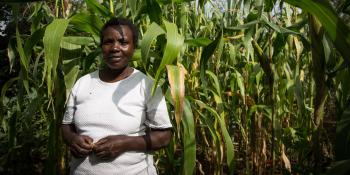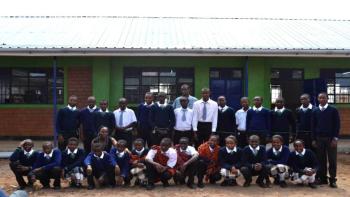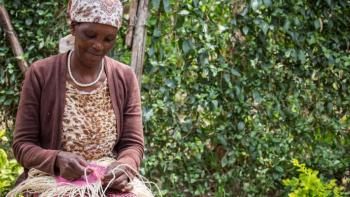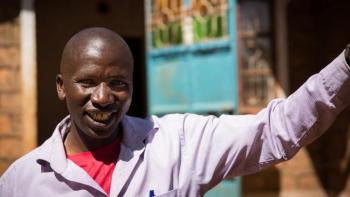Living positively and with a purpose
How a home breeds confidence and self-reliance
Watching her eldest daughter and grandchild walk through her garden towards her, Julia Karugi Kiongera knows what perseverance means every day. She’s a survivor. Julia, 54, is HIV positive and has lost her husband and a son. But, against the odds, she has re-built her life.
Being HIV positive, Julia knows that her anti-retrovirals and a healthy diet are critical to her very existence. In her verdant cottage garden, Julia cultivates a wide range of fruits and vegetables to help her cope with the obligatory daily cocktail of medicine. But as she busies herself in her immaculately kept yard, HIV isn’t the only survival challenge Julia has encountered.

Nine years earlier, she lived in Eldoret in Kenya’s Rift Valley and was the proud mother of two boys and two girls. As the year drew to a close, ethnic violence erupted following Kenya’s 2007 presidential election. Julia’s family was targeted. She and her family were forced to flee their home, spending a day sheltering in a river to avoid detection.
“When I was in the river I wondered why this had happened,” she recalled. “There was a rumor the election had been rigged and I was thinking ‘this is not my problem’. But, then I realized this was a war that had already been planned. If we had known, we would have fled before the elections even took place.”
As they tried to escape the violence, they had further scrapes with death. This included avoiding being locked in a church with 50 other people, which was then set alight. However, Julia still lost a son. To this day, she remains distressed that his body was never identified. And, her husband disappeared. It was a situation that pushed Julia to her limits.
“I was HIV positive and knowing what I was going through, I got to the point where I stopped taking medication hoping I would die,” she said.
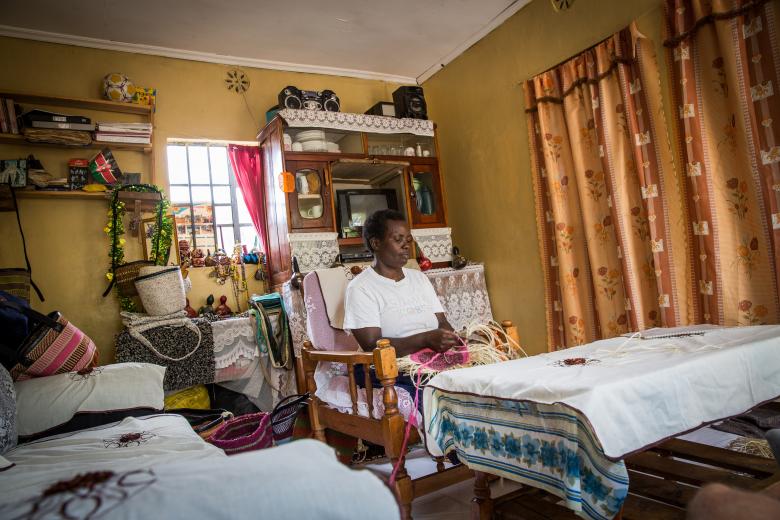
But, her love for her children, her faith and the chilling words of a counsellor at a self-help group were the inspiration to continue. “They advised me to start life afresh and try and forget what had happened,” she commented. “They told me if I needed to take care of myself and take my medicine because no one would support us and I’ll die.”
Julia had lost everything. Her home along with the others who fled were either taken over or dismantled. Julia was moved to a camp for Internally Displaced People (IDP), 250 kilometres along the Rift Valley. For almost two years, Julia and her family’s home was a simple canvass tent with a mattress on the ground. While they were safe, the extreme climate swings from scorching heat to cruel cold with heavy rains that drenched everything they owned made life almost unbearable.
Today, sitting under the shade of a papaya tree in her garden, Julia often thinks about the past. “There was a lot of wind, no trees, no grass, and no water source nearby,” she said. “The only water that was available came from a salty hot spring. We fetched with jerry cans that became so hot that they would burn our backs.”
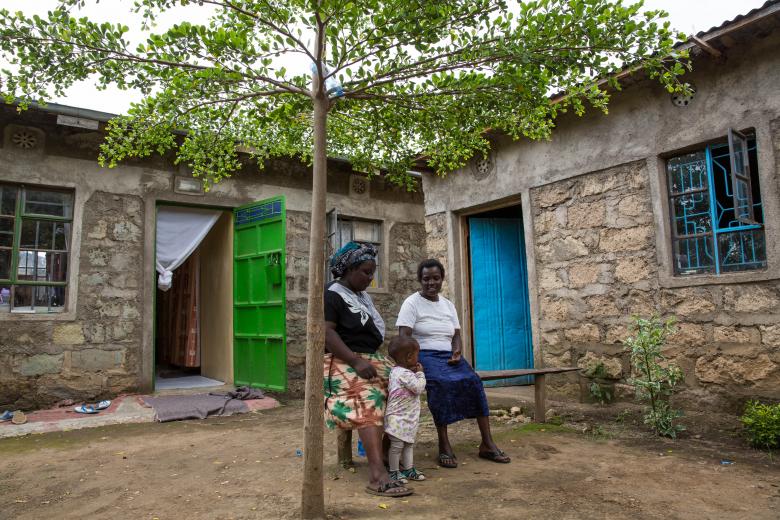
To help resettle the IDPs, the government gave them some money. The IDPs in turn banded together, pooled their resources and bought land in Maai Mahiu, near Naivasha. It was then that Habitat for Humanity entered her life. Julia and her community became aware of Habitat Kenya when it started building homes in neighbouring Amani.
After witnessing houses being constructed in a nearby camp, Julia was fortunate enough to be selected for a Habitat home. “I prayed to God that one day Habitat would do this for me. Now I have got it (a new home) and am now able to sustain myself.”
Clearly, Julia’s house has given her a sense of security and a platform for personal and economic development. In addition to her garden, Julia has started a crafts business and even opened a little shop, which is built within her compound.
Tavitha Njeri Kiburu, who had known Julia from their previous lives in Eldoret, witnessed the change in Julia. “Julia was broken by her experience in Eldoret,” she commented. “But once her home was built, she focused on rebuilding her life. She started making money through basket weaving and beaded jewellery as well as through her shop.”
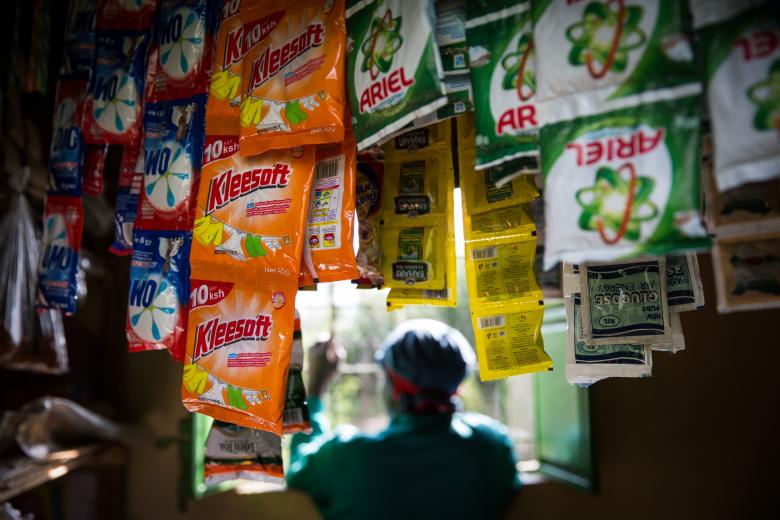
The connection between the two women is close. Tavitha was approached by Habitat as part of a disaster response programme to build homes. Appointed Chairlady of the community, Tavitha was asked to oversee the construction of 15 homes—one of which was Julia’s. In total, between 2009 and 2012, Habitat Kenya built 335 houses for IDP in the area.
Julia acknowledges that Habitat was instrumental in inviting other organisations to help her community re-build their lives. Many even became willing buyers of her beads and bags.
The camp, which now houses a community of 226 families, is named ‘Vumilia’ after the Swahili word for perseverance. The name aptly describes Julia, who now wishes her good fortune could be shared with those left in the camp still awaiting a home.
In total, between 2009 and 2012, Habitat Kenya built 335 houses for Internally Displaced People in Eldoret.
“There are still nine families in the area who need houses,” Julia commented, “and about 2400 IDP families who still do not have houses. Hopefully, one day, they will get a house like mine.”
Looking back, Julia is glad she continued to take her anti-retrovirals during her darkest days. “Thanks to Habitat I have a new drive and determination so that I forget I am HIV positive,” she said. “I only remember when I take my medicine.”
